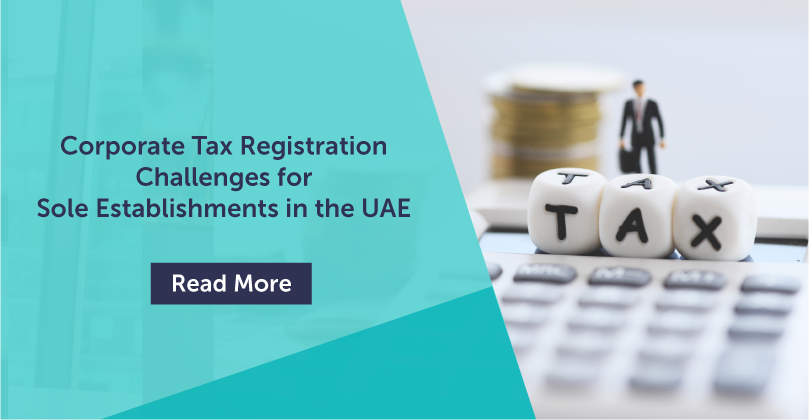
- Sep 09,2025
- Corporate Tax in UAE
Corporate Tax Filing in the UAE and the Importance of Financial Statements
Introduction
With the introduction of Corporate Tax in the UAE at a competitive rate of 9%, businesses across all sectors have entered a new era of tax compliance and financial reporting. Whether you're a mainland company, a Free Zone entity, or an international group operating in the UAE, understanding the corporate tax filing process—and the critical role of financial statements—is essential for maintaining compliance and avoiding penalties.
In this article, we’ll walk you through how to file your UAE corporate tax return and explain why your financial statements are the foundation of your tax compliance strategy.
What Is UAE Corporate Tax?
The UAE implemented its federal corporate tax regime on June 1, 2023, applying to most business entities and individuals conducting business activities in the country.
Key Highlights:
- Corporate Tax Rate: 9% on taxable income exceeding AED 375,000.
- Exempt Entities: Government entities, public benefit organizations, and companies involved in natural resource extraction.
- Small Business Relief: Businesses with revenue under AED 3 million opt under this scheme until 2026, but must still file a return.
- Free Zone Companies: May qualify for a 0% tax rate, provided they meet the criteria of a Qualifying Free Zone Person (QFZP).
- Foreign Companies: Subject to UAE tax if income is connected to a permanent establishment in the UAE.
- Individuals: Only taxed on business income if annual revenue exceeds AED 1 million (personal salary and investment income are excluded).
- Tax Registration: Required for all taxable persons, even with zero revenue, via the EmaraTax portal, and should submit the CT return.
- Filing Deadline: Tax returns and payments are due within 9 months from the end of the financial year.
How to File Corporate Tax in the UAE?
Filing your UAE corporate tax return is a structured process governed by the Federal Tax Authority (FTA) regulations. Here's a step-by-step guide:
1. Prepare Financial Statements
The first and most crucial step is preparing accurate financial statements, which form the basis of your tax return.
Key Points:
- Must be prepared in accordance with International Financial Reporting Standards (IFRS).
- Cash basis accounting is permitted only for businesses with annual revenue under AED 3 million.
- Audited financial statements are mandatory for:
- Businesses with revenue over AED 50 million.
- All Qualifying Free Zone Persons (QFZPs).
2. Calculate Taxable Income
Adjust your accounting profits to account for non-deductible expenses, exempt income, and applicable reliefs under the UAE Corporate Tax Law.
3. Register on the EmaraTax Portal
Ensure your business is registered for corporate tax via the EmaraTax platform, which is required before return filing.
4. Submit Your Tax Return
- Log in to EmaraTax and complete your tax return form.
- Attach supporting documents, including your financial statements.
- Pay any applicable tax due before the deadline.
5. Maintain Records
Businesses must retain all financial records and supporting documentation for a minimum of 7 years to ensure compliance and facilitate future audits.
Why Financial Statements Matter in UAE Corporate Tax Filing?
Your financial statements are not just an accounting requirement—they are the cornerstone of your corporate tax return. Think of them as your business’s passport to navigate the UAE’s tax regime.
1. Accurate Tax Calculations
Only with a well-prepared financial statement can you:
- Correctly calculate your taxable income.
- Apply reliefs, exemptions, or deductions accurately.
2. Regulatory Compliance
UAE Companies Law requires all businesses to maintain financial statements, regardless of tax liability. This supports both corporate governance and legal compliance.
3. Access Free Zone Benefits
To claim the 0% tax rate as a Qualifying Free Zone Person, you must maintain and submit audited financial statements.
4. Audit Protection
Comprehensive and properly maintained financials provide an audit trail that protects your business in case of FTA inquiries or inspections.
Final Thoughts
The introduction of corporate tax in the UAE marks a major shift for businesses—but also an opportunity to strengthen financial discipline and transparency.
Whether you're a startup, SME, or multinational, the key to successful tax compliance lies in:
- Timely tax return filing,
- Accurate financial reporting, and
- Strategic planning for tax efficiency.
Need Help with Corporate Tax Filing in the UAE?
If your business requires support with corporate tax compliance, preparing financial statements, or navigating the EmaraTax portal, CLA Emirates is here to help.
At CLA Emirates, our expert team of tax consultants, chartered accountants, and compliance advisors brings years of hands-on experience in UAE tax law and regulatory requirements. We provide end-to-end assistance with:
- Accurate and timely preparation of financial statements in accordance with IFRS.
- Corporate tax registration and filing via the EmaraTax platform.
- Identifying applicable exemptions, reliefs, and deductions.
- Ensuring full compliance for Qualifying Free Zone Persons (QFZPs).
- Providing audit-ready documentation and long-term tax planning strategies.
Whether you're a startup, a Free Zone company, or a multinational entity, we tailor our services to meet your specific needs, ensuring you stay compliant, efficient, and penalty-free under the new UAE Corporate Tax regime.
Get in touch with CLA Emirates today for expert corporate tax filing services or if you need professionally audited financial statements prepared.
Call for Consultation
Pradeep Sai | Co-Founder & Managing Partner
M: +971 55 653 0001
E: Pradeep.Sai@claemirates.com




